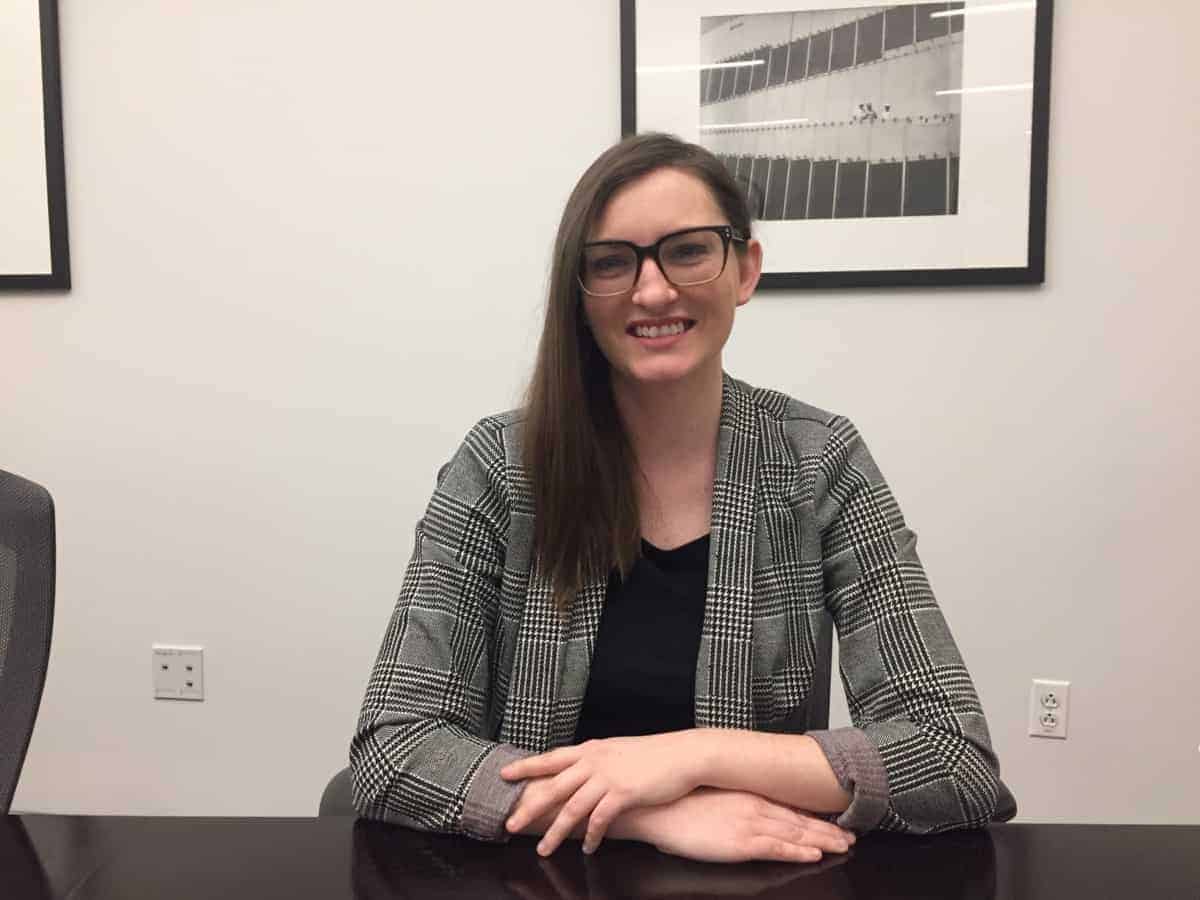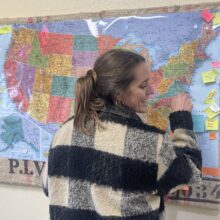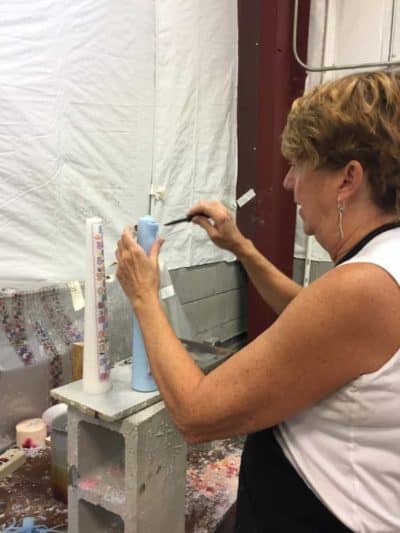

Kylie Foley has been with the Institute for Emerging Issues (IEI) since 2016, working with faith leaders and rural North Carolina communities to help connect the dots using data. Her work is based around the word connection, and it is only fitting that on Monday IEI hosts its second of six forums entitled ReCONNECT NC.
We sat down with her to hear more about her work with faith leaders and how “anchor institutions” can work to positively impact the communities they serve. See our insightful conversation below, edited for length and clarity.
Parker: Tell me about your role at the Institute for Emerging Issues.
Foley: So we have a Thriving Rural Communities program here at IEI. We’ve had it for about three years now. We’re on a second iteration of a grant, thanks to the Duke Endowment. We started partnering, trying to figure out how to bring faith leaders to our signature forums that happen every year, our Emerging Issues Forums, and make sure that our faith leaders were in the mix with educators, nonprofits, government, and businesses, to feel like they had a seat at the table.
But then we also expanded to make sure faith leaders have their own space to talk about their community development questions and issues, doing that through a separate faith conference every year as well. We would do technical assistance throughout the year that comes in the form of visiting pastors, having them visit each other, hosting peer networks around topics that interest them, and connecting them to resources beyond what IEI offers in terms of our emerging annual issues.
Parker: What is your relationship with Duke Divinity’s Thriving Rural Communities (TRC) initiative?
Foley: We originally got started to be a kind of alumni network facilitator for the TRC. When they graduate Duke Divinity, they’ve been asked to go and serve at least five years in a rural United Methodist Church in a community pastor format. So how do they get to make relationships with their community? How do they get to know how to steer their congregation and the congregational values to make a real difference in the things that matter to them? IEI was one of the many kinds of technical assistance partners that said, you know, come to our forums. We’ll talk to you about asset-based community development training and pair data with what you’re doing on the ground to see what we can make a difference in, in terms of variables.
Parker: So you describe churches and places of worship as anchor institutions. Could you expand on that?
Foley: So our kind of go-to example is that across rural North Carolina, a lot of our pastors describe their town by how many stop signs or stop lights they have or by sharing how far the nearest grocery store is. In terms of our faith communities, we realized and they’ve realized for a long time, they are truly anchor institutions.
A lot of them have histories that are over 100 years old and have helped form the town or been parallel to the town’s history. When you have two, three, or more of those same types of institutions in small towns that can often feel forgotten or don’t have the same resources as other communities, you can lean on these institutions and find credibility in community.
And how do they use that? By thinking of all your assets. The building, where we’re located in town, our values, etc. What does the community know about this? Do they know that they are a place that you can go for x, y, and z, based off of things they care about and preach about? And so really having the congregations lean into their identity, not only their physical space and how long they’ve taken up residence in town, but knowing that in the community, they often have a lot of relationship capital, even if it’s just decades old.
Parker: ReCONNECT NC is coming up. Could you tell me a little bit more about it?
Foley: We realized with how the world is changing … we needed greater consensus, not just from experts but from experts on the ground. We asked ourselves, what do North Carolinians think are the greatest issues that our state is facing? And so in 2018, we suggested to faith leaders, educators, teachers, our constituents, people that have come to our forums, and people that have never heard of us, to submit their ideas about what is the greatest issue that they see North Carolina facing. We got over 100 unique responses.
We tried to whittle it down to what is the general theme, and it was very obvious. It was about reconnecting to each other. And so how do we get to folks that feel disenfranchised from the work that we’re doing that don’t have the same access to resources, whether that be because of where they live in North Carolina or barriers that they face? We saw this overall reconnect theme of, how do we come together around these big issues and make progress? Along with that, we realized the opportunity to talk about very specific challenges that came up over and over again, not just through the ReCONNECT missions but through our work.
So [we are] taking on the challenge and the narrative of the rural-urban divide and talking about how there’s multiple ways North Carolinians are coming together to bolster not only our rural and urban economies but suburban for the good of the state.
Parker: How do faith leaders play a role in this initiative?
Foley: We’re really excited because in the past, we’ve had a day and a half forum and also the RFCI conference. In the interest of not taking too much time, we’ve always just checked in with the faith leaders after the forum. For the ReCONNECT series, we’re really deliberately doing a day long forum along with everyone else, where faith leaders get to hear the same information. Big leaders are on stage talking about their stories. Then the next day, we’re hosting a half day faith leader gathering where, against all of my natural instincts, we’re trying not to program it all out but really hear from faith leaders. What did they love? What would they improve about the day before? What spoke to them as faith leaders? What other perspectives do they need to hear, since they make up a huge percentage of our audience, and we really value their voices and who they represent.
We also talk about the issues. No matter what the ReCONNECT topic is, how does it actually play on the ground? We presented data, we presented stories, who presented resources, is this helpful? It always comes back to questions with our faith leaders. We try to put a lot of processes on it. We’ve talked about asset-based community development, design, thinking and [a] number of different ways to work towards making improvements. But it comes down to, what is your main question when it comes to your ministry, your congregation, your community? Who else has those questions? Or who else might be able to offer an answer to those questions, or at least a solution in the short term or long term. We want to know what this looks like in the real world to reconnect through faith leaders’ perspective.


